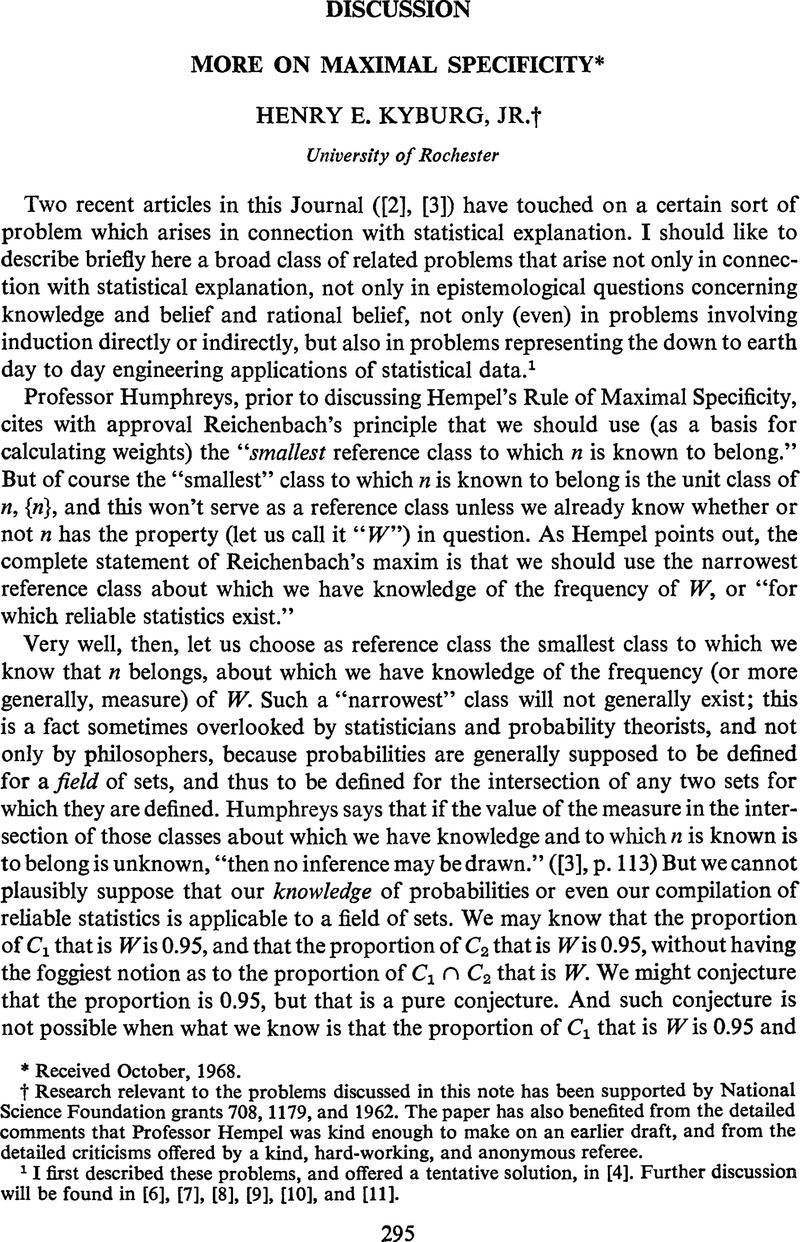Crossref Citations
This article has been cited by the following publications. This list is generated based on data provided by Crossref.
Kyburg, Henry E.
1979.
Tyche and Athena.
Synthese,
Vol. 40,
Issue. 3,
p.
415.
Niiniluoto, Ilkka
1982.
La philosophie contemporaine / Contemporary philosophy.
p.
157.
Kyburg, Henry E.
1991.
Uncertainty in Knowledge Bases.
Vol. 521,
Issue. ,
p.
203.


